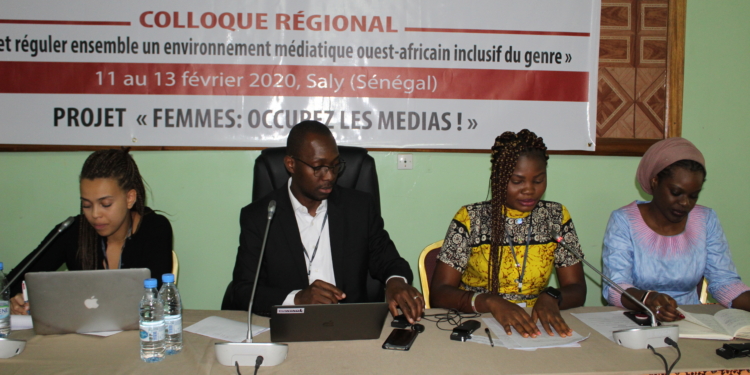The Regulation of media content has been identified as one of the effective keys to achieving positive reporting of women in the media in West Africa.
Concerned by the underreporting of women in the media in the region, stakeholders discussed how the media can be equitable in the reportage of both gender.
At a media conference on ‘Working Together to Build and Regulate a Gender Inclusive Media Environment in West Africa’ that held in Saly, Senegal, media experts across West Africa have called for the regulation of media contents towards achieving a robust content and positive messaging about women in the media.
The colloquium, which had in attendance Media practitioners, Women’s rights organizations, Regulatory Agencies, Ministries of Communications, Civil society organizations and Media Professional Organizations, was organized for the purpose of building a gender inclusive environment in West Africa.
George Sarpong, Executive Secretary, National Media Commission, NMC, Ghana, said that one of the ways regulator can increase the coverage of women in the media is to grant more licenses to female media owners.
Sarpong highlighted “positive content regulation, must carry rule and licensing” as some of the tools that can be employed to regulate media content in getting secure desirable outcomes of women reportage.
He explained that with ‘Positive content’ and ‘Must carry rule’, media owners are compelled by the regulators to allot a certain percentage of their contents to women issues.
“It is certain that the more media houses owned by women, the more contents about women would be available in the media.
“One of the ways regulators can increase the coverage of women issues is to grant more licenses to female owners”, he added.
Latifa Akharbach, President of the High Authority for Audio-visual Communication, Morocco, explained that the body has been building the capacity of journalists to ensure they are able to publish or disseminate the right contents about women.
She noted that the impact has been minimal but assured that the effect would be multiplied and the media would increase its reporting and coverage of women related issues.
Giving an insight into the regulation of content on women in social networks, Blessing Oladunjoye, Publisher, BONews, stated that gender issues should be treated as a cross-cutting issue which would enable online journalists and social media users to have rich and positive contents about women.
Oladunjoye noted that the regulation of the online media could be dicey because just as it could provide adequate coverage of women issues, it could also infringe on the rights of women in using the social media for positive messaging.
She, however, mentioned that it is important for all online users to be deliberate about their use of social media to propagate gender issues.
“Gender related issues should be considered as cross-cutting rather than stand-alone because there’s a gender focus in every issue and every sector.
“Either education, economy, health or politics, there is a gender perspective to all,” she said

